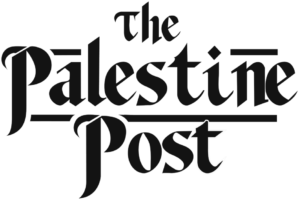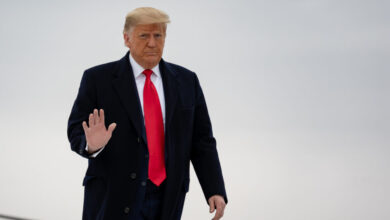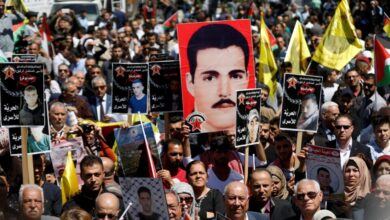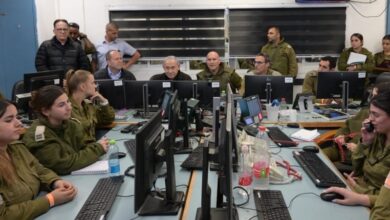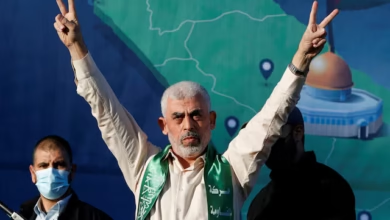The Greater Israel Vision and Its Role in Regional Destabilization
Greater Israel’s Expansionist Agenda and Its Consequences for Palestine and the Region
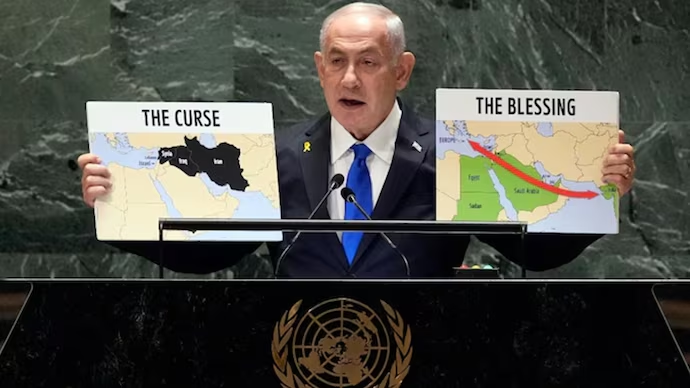
The Greater Israel ideology stands as one of the primary pillars shaping Israeli occupation policies since its inception. This concept involves expanding Israel’s borders beyond its current ones, disregarding the boundaries established by the 1947 UN resolution that divided Palestine into two states—Arab and Jewish—approved by 33 countries, opposed by 13, and with 10 abstentions.
This ideology draws from early Zionist visions advocating the creation of a Jewish state on what is claimed as “historic lands.” This vision includes a so-called unified “Greater Israel” from the Jordan River to the Mediterranean Sea, encompassing parts of Palestine, Iraq, Lebanon, Jordan, and Saudi Arabia. The influence of this ideology directly impacts regional stability, placing the Palestinian people in an ongoing struggle against the risks of displacement and marginalization.
The term “Greater Israel” typically refers to the expansionist aspiration to widen Israeli territorial control and sovereignty over what proponents deem as “Biblical lands.” It reflects a belief in Israel’s right to exist across all of historic Palestine, impacting the political and social dynamics of the region.
The Historical Roots of the Greater Israel Ideology
The Greater Israel ideology traces back to early ambitions of leaders in the Zionist movement, who envisioned a Jewish state extending beyond the current borders of Israel. This expansionist dream began with the founder of Zionism, Theodor Herzl, who in 1904 declared that the borders of the Jewish state should stretch “from the River of Egypt to the Euphrates.” This vision became a core idea in Zionism’s expansionist plans, which still influence Israeli policy today.
In 1947, Rabbi Yehuda Fishman strengthened this ambition by testifying to the United Nations Special Committee on Palestine, stating that Israel’s territory should be much larger. He based this argument on religious interpretations, presenting a view of Israel as a nation entitled to significant land beyond its current boundaries. Over time, Israel has continued to support this vision through actions such as settlement expansion and policies that extend its reach in Palestinian territories.
The Greater Israel ideology became more explicit in the 1980s, especially through the work of the Zionist strategist Oded Yinon. In 1982, Yinon published an article titled “A Strategy for Israel in the Nineteen Eighties” or commonly known as the “Yinon Plan.
” This article, written in Hebrew, called for weakening neighboring Arab states by dividing them into smaller, ethnically and religiously fragmented regions. Yinon argued that this division would make it harder for Arab nations to oppose Israel’s growing influence. Soon after, anti-Zionist activist Israel Shahak translated the article into English, spreading awareness of the plan’s implications internationally. According to Yinon’s strategy, dismantling neighboring countries is essential for achieving a “Greater Israel.”
Some Israeli thinkers, such as Franklin Rykaert, have supported this ideology. Rykaert even proposed that Israel should “ethnically cleanse” the land between the Nile and the Euphrates to make room for Jewish settlers. However, Rykaert’s plan faces serious challenges, as the world’s Jewish population is about 14 million, far fewer than the estimated 100 million Arabs currently living in this region. This stark difference in population makes realizing the Greater Israel ideology highly unrealistic, highlighting the extreme difficulties of such an expansion.
Moreover, the Greater Israel ideology intertwines religious and political ideas, using religious texts to justify the acquisition of territory. Many Zionist thinkers cite sacred texts to defend the expansion of Israel, claiming a “divine right” to these lands. In this way, the idea of a “Greater Israel” is rooted in historical and religious beliefs that have been reinterpreted to serve political and strategic goals.
Israel’s expansionist policy has also led to systematic actions in the occupied territories, aiming to annex more Palestinian land. The result is a direct impact on the Palestinian people, whose daily lives and right to self-determination are affected by this ideology. As the Greater Israel ideology continues to influence Israeli policy, it further destabilizes the region and escalates tensions, ultimately making peace in the Middle East harder to achieve.
The Greater Israel Ideology: Israeli Strategies and Policies for Expansion
The Greater Israel ideology is not just a theoretical idea; it is a long-term plan based on various strategies aimed at expanding Israel’s control over Palestinian and Arab lands. Over time, these strategies have adapted to military, political, and economic challenges, all focused on expanding Israel’s borders by gradually taking over new lands, displacing local populations, and building settlements on occupied Palestinian land.
1. Settlement Expansion in the West Bank and East Jerusalem
A core part of Israel’s plan to achieve the Greater Israel ideology is its ongoing settlement expansion in occupied Palestinian territories. Since the 1967 war, Israel has built many settlements in the West Bank and East Jerusalem, which are essential to changing the region’s demographic and geographical landscape.
This expansion involves constructing thousands of Israeli housing units on Palestinian land, increasing the number of Israeli settlers in these areas. The goal is to reduce the Palestinian presence and establish a reality on the ground that aligns with the Greater Israel vision, which stretches “from the Nile to the Euphrates.” This expansion also includes building roads, infrastructure, and public facilities, strengthening Israeli control over these areas.
According to reports from human rights organizations like the Palestinian Observatory, these policies displace Palestinians from their land, forcing many to demolish their homes and face restrictions on returning to areas now occupied by settlers. Settlement building in East Jerusalem further isolates the city from other Palestinian areas, securing Israeli control over it.
2.Control Over Natural Resources
Control over natural resources is a major part of Israel’s Greater Israel strategies. Since the occupation of the West Bank and Gaza in 1967, Israel has sought control over natural resources, especially water, which is highly valuable in the Middle East.
Israel maintains control over major water sources like the Jordan River and underground aquifers in the West Bank, allowing it to regulate the water supply to Palestinian areas. Israel’s policies include constructing dams and controlling water sources, impacting Palestinians directly by limiting their access to water for drinking and agriculture.
These strategies also involve controlling agricultural lands in the West Bank that produce essential crops like olives and grapes. By controlling these lands and resources, Israel strengthens its economy, supporting its expansionist ambitions.
3. Military Power and Regional Dominance
Military power is a key tool in implementing the Greater Israel strategy. Israel believes that military superiority is essential for controlling Palestinian and Arab lands and supporting expansionist projects. Israel’s military has equipped with advanced weapons and technology, including nuclear capabilities, securing its regional dominance.
Israel uses its military to control areas it wants to dominate, conducting direct wars or smaller military actions in occupied territories. This approach is closely tied to the Greater Israel Ideology, which seeks to expand Israel’s borders beyond the 1967 lines.
This ideology justifies the protection of Israeli settlements and securing interests against any potential resistance from Palestinians or neighboring countries.
However, the Palestinian resistance’s response on October 7, 2023, marked a significant shift. It was not merely an act of escalation but a powerful stand against the ongoing efforts of expansion, demonstrating that Palestinians can resist the Greater Israel Ideology and its continuous attempts to displace and control. The attack highlighted the resilience of the Palestinian people, challenging Israel’s plans and showing that resistance remains strong despite the odds.
Israel also imposes numerous military checkpoints and barriers in the West Bank, making the life under Occupation more difficult for Palestinians and strengthening Israeli control over disputed areas.
Israel’s military strategy is not just about defense; it extends to regions Israel aims to control, like the Golan Heights and Gaza. With advanced defense systems like the Iron Dome, Israel strengthens its military stability in the region.
4.Political Alliances and Diplomatic Efforts
Israel’s Greater Israel strategy also includes building strong political and diplomatic alliances to gain international support. Over decades, Israel has strengthened its relationship with the United States, its main ally, securing ongoing military and political support.
Israel has also improved its relations with other countries in the region through military and intelligence cooperation, enhancing its ability to carry out expansionist plans
On the other hand, Palestinians and the Arab world have long called for international resistance to these policies, advocating for Palestinian rights through diplomatic channels to bring global attention to The Palestinian issue.
Israel’s strategies and policies to achieve the Greater Israel ideology have deeply affected Palestinian lands and people. Through settlement expansion, control over resources, military power, and political alliances, Israel continues to push forward with its expansionist agenda in the region. These strategies remain a major obstacle to a fair and peaceful solution in the Middle East, intensifying the Palestinian -Israeli conflict. The international community must be aware of these policies and work towards ensuring Palestinian rights and promoting a lasting solution.
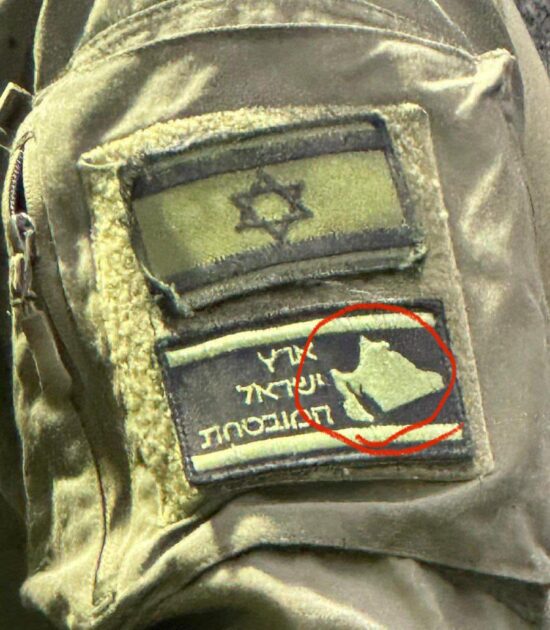
The Role of Israeli Media in Shaping Public Opinion on The greater Israel
Israeli media plays a central role in promoting The Greater Israel Ideology by creating a specific narrative about the Palestinian-Israeli conflict. This narrative aims to reinforce the belief that expansion and occupation are “security necessities” for Israel. Hasbara, which refers to Israeli public relations efforts or propaganda, is a key component of this strategy. Through both official and unofficial channels, Hasbara seeks to shape a narrative that aligns with the goals of The Greater Israel Ideology, presenting Palestine and its territories as part of the “Jewish national homeland.”
Hasbara and Promoting Expansion as a Security Necessity
Hasbara focuses on framing the expansion and control of Palestinian territories as essential for Israel’s security. Israeli media often uses this justification to argue that Israel must expand its reach to protect its borders. Through this approach, Israeli media works to gain support and sympathy from both the Israeli public and the international community by portraying expansion as a legitimate “security” measure.
Hasbara also employs strategies to minimize the impact of the Palestinian narrative on global public opinion. By building strong ties with international media, Israel works to limit the reach and effectiveness of the Palestinian perspective on the conflict. This effort often involves portraying Palestinian resistance as a “security threat,” which weakens international support for the Palestinian cause. This narrative suppression helps advance The Greater Israel Ideology with limited opposition from the global community.
Challenges Facing the International Community in Confronting The Greater Israel Ideology
The international community faces several challenges in addressing the policies of The Greater Israel Ideology. Despite continuous condemnations from numerous countries and international organizations, Israel continues its expansion plans with little deterrence. Political, economic, and geopolitical obstacles often stand in the way of global efforts to curb Israeli expansion.
Legal and Political Obstacles in the UN Security Council
The United Nations Security Council faces significant challenges in issuing decisive actions against Israel due to some countries using their veto power to protect their strategic interests in the region. This reality poses a major barrier to enforcing effective sanctions or implementing legal measures to limit The Greater Israel Ideology policies.
Certain international organizations attempt to file legal complaints against Israel for its expansionist policies, but enforcing international law against Israel is fraught with obstacles. These include difficulties faced by the International Criminal Court in gathering and presenting evidence due to the complexity of the conflict and the sensitive political situation. The lack of sufficient global pressure also allows Israel to persist in its expansion strategies.
The Greater Israel Ideology remains a driving force behind Israel’s expansionist policies, deeply affecting Palestinian lives and reshaping the political landscape of the Middle East. From historical roots to modern strategies, this ideology has shaped not only Israeli policies but also the wider regional dynamics, often at the expense of Palestinian rights and aspirations. Through settlements, military strength, and media narratives, Israel’s pursuit of “Greater Israel” advances, destabilizing the region and complicating the prospects for peace.
